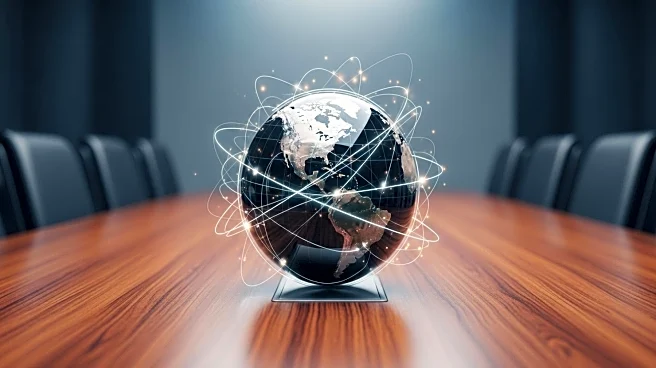What's Happening?
The World Trade Organization (WTO) is an international body that regulates trade rules among its 164 member countries, ensuring smooth and predictable trade flows. Established in 1995, the WTO emerged from the General Agreement on Tariffs and Trade (GATT) and now covers trade in goods, services, and intellectual property. The organization provides a platform for resolving trade disputes, often through negotiations or sanctions, and aims to create economic stability through a multilateral system.
Why It's Important?
The WTO's role in facilitating global trade is essential for economic peace and stability. By providing a legal framework for international commerce, the WTO helps countries navigate complex trade issues and prevents conflicts from escalating. Its efforts to promote free trade and reduce barriers benefit economies worldwide, fostering growth and development. However, the organization faces criticism regarding transparency and the impact of free trade on local economies.
What's Next?
The WTO continues to address challenges in global trade, including the need for reforms and the resolution of ongoing trade disputes. The upcoming Ministerial Conference will focus on advancing trade negotiations and addressing concerns about national sovereignty and intellectual property rights. These discussions are crucial for maintaining the WTO's relevance in a rapidly changing global economy.
Beyond the Headlines
The WTO's influence extends to broader economic and political issues, including the impact of trade policies on national sovereignty and intellectual property rights. Critics argue that the organization's rules may compromise domestic interests, highlighting the need for balanced trade agreements that protect local economies while promoting global commerce.









